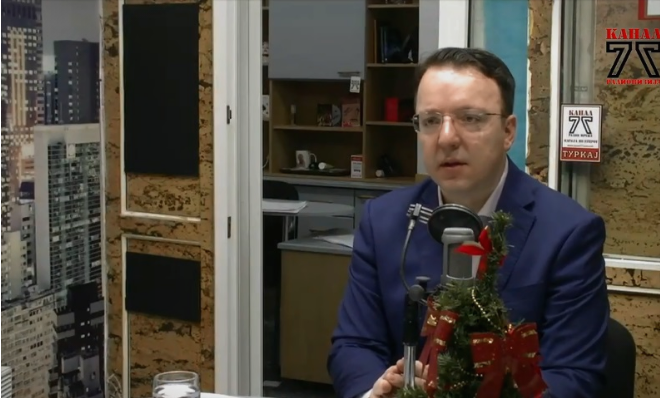VMRO-DPMNE worked hard with the Visegrad 4 countries to get their help and prevent adding historic issues as criteria of our EU membership, the party’s Vice President Aleksandar Nikoloski said in a radio interview. Slovakia and the Czech Republic vetoed a demand by Bulgaria that Macedonia’s integration in the EU is conditioned on ending what Bulgaria believes is misinterpretation of history.
We have great friends in the governments of the V4 countries. Three of them are in the EPP party where we belong, and the fourth is even further to the right, in the group of European conservatives. It was a coordinated response against the attempt to make EU enlargement conditioned on historic interpretation, Nikoloski said, adding that it is no coincidence that Hungarya invited the Macedonian Foreign Minister as the coordination on this issue was on-going.
The Visegrad 4 group is a great supporter of EU enlargement and also of Macedonia, and VMRO-DPMNE maintains good friends there, starting with Hungarian Prime Minister Viktor Orban, Polish Prime Minister Morawiecki, and the leaders of the Czech Republic and Slovakia, Nikoloski said.
The opposition official added that “no normal person” would negotiate away the national interests of his country, like Zaev does in his talks with Bulgaria. He insisted that the Macedonian struggle for statehood is a continuous process that can’t be split into portions and given away, like Bulgaria insists, with its demand for reinterpretation of history. Nikoloski accused Bulgaria of attempting to undermine Macedonian statehood by appropriating portions of the national liberation struggle, while denying others, like the partisan campaigns during the Second World War.
We saw the public expression of outrage after Zoran Zaev’s BGNES interview. Protests sprung out and the people told Zaev what they think about the policies he keeps pursuing. To my great pleasure, after a while, we had the Macedonian Academy speak out, as did the University Ss. Cyril and Methodius, the Church and many other organizations. The people warned Zaev to stop meddling with our national interests.
We ask Zaev to respond if it’s true that he is working to compromise members of the joint committee of historians, and eventually replace them through the Foreign Ministry, so that he will get a more pliable committee that would agree to all his demands, Nikoloski added. The committee is locked in difficult talks with Bulgarian historians who state the demands of their country for interventions in the Macedonian history.





Comments are closed for this post.